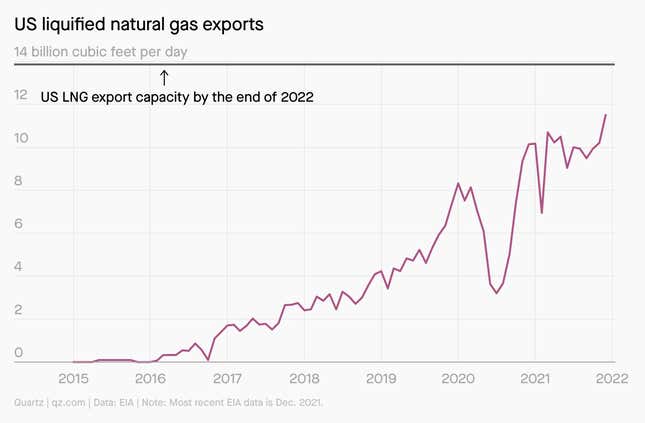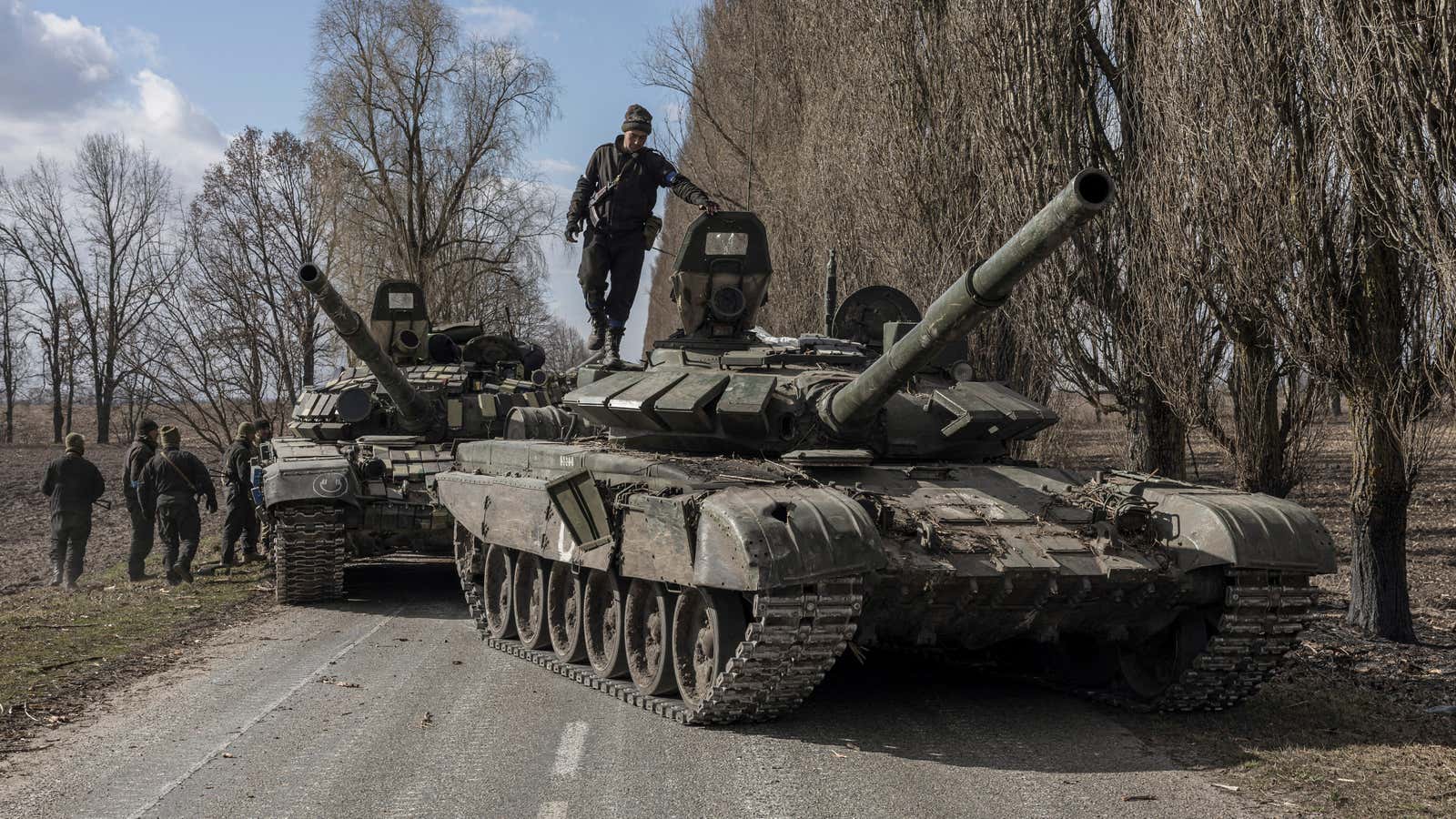Good morning, Quartz readers!
Was this newsletter forwarded to you? Sign up here. Forward to the friend who still won’t watch The Exorcist.
Here’s what you need to know
Ukraine is willing to be neutral. President Volodymyr Zelenskyy made the remarks Sunday in a video call with Russian journalists, but any peace deal would need third-party sign off and a referendum, Reuters reported. Meanwhile, US president Joe Biden said Vladimir Putin “cannot remain in power,” though the White House later walked back those remarks.
Shanghai will lock down. Most businesses in the financial hub will be closed in two separate stages to test for covid as cases spike.
Prices spiked in Japan. Tokyo’s consumer price index jumped the fastest since 2019, due in part to a 26.1% increase in energy prices.
Second black box found in China Eastern Airlines crash. The flight data recorder was located yesterday, possibly shedding light on the cause of the crash of Flight 5735.
China and India had post-conflict diplomatic talks. The two countries held their first high-level meeting over the 2020 border conflict in the Himalayas that led to the death of Chinese and Indian soldiers.
BBC News went off air in Afghanistan. The organization said its TV partners were ordered by the Taliban to take down international broadcasts.
What to watch for
Normal trading of shares and bonds will resume today on Russia’s stock market during a shortened time window of 9:50am to 1:50pm Moscow time, the Russian central bank confirmed (link in Russian). However, non-residents will still be unable to trade or sell stocks and bonds until April 1.
Russia’s stock market reopened to limited trading last Thursday, with only 33 stocks available for trading, after being closed for roughly a month following the invasion of Ukraine. On Feb. 24, the day Russia invaded Ukraine, the Moscow stock exchange (MOEX) plunged by 33%. Soon after, the ruble dipped to a record low against the dollar.
Ongoing peace talks have stoked optimism that the conflict may soon end, but the Russian stock market, worth about $400 billion, remains in a fragile state even as trading resumes.
Does the US have gas to give?
Europe has a Russia-sized hole in its natural gas supply, and the US wants to help fill it. The US agreed to give the EU another 15 billion cubic meters of liquified natural gas by the end of this year.
It’s a nice political gesture, but the US liquified natural gas exports are maxed out. In February, US gas exports hit a record of 13.3 billion cubic feet per day, the first time that all seven terminals in the country were fully docked by tankers at once.
It takes years to build new export infrastructure, so it’s not clear how the US can meet its near-term promise to Europe other than asking customers like China and Japan to resell some of their American liquified natural gas to Europe. Long-term, European buyers are already signing advance contracts with the US.

Here come the carbon accountants
As Europe shifts away from Russian gas, whether through imports or renewables, any reliance on burning fuel will mean more carbon emissions—which countries increasingly want to track. In the US, companies face new rules to disclose their climate change risks. But the biggest gold rush could be for climate accountants. ✦ Try membership free for a week to read our predictions on this trend and more.
Handpicked Quartz (The Oscars edition)
😱 Why Hollywood’s horror movie sequel addiction is too profitable to ever kick
🛍 The Oscars swag bag included a plot of land and a nobility title in Scotland
🏆 The story of Diane Warren and her 13 Oscar nominations
💪 Amazon’s MGM purchase made it one of the biggest Oscar contenders overnight
🌐 Why the “The Matrix” never should have had a series of sequels
🗞 The story of a spirited Indian newspaper run by rural Dalit women was an Oscar nominee
Surprising discoveries
To live in the Blue House or not. South Korea’s incoming president doesn’t want to call the traditional residence his home.
A dual covid-flu diagnosis can double the risk of death. Scientists said covid patients should routinely be tested for influenza.
An ice shelf the size of New York City collapsed in Antarctica. It’s the first time an event like this has been recorded in human history.
Sean Penn insisted that the Oscars invite Zelenskyy to speak. The actor, who has been in Ukraine and Poland filming a documentary, said he’d “smelt” his awards if this didn’t happen.
Speed 2: Cruise Control was a bad movie, right? Well, the reviews were harsh, but it grossed $48 million at the box office. What, then, are the markers of a bad sequel? The latest episode of the Quartz Obsession podcast has some ideas.
🎬 Listen on: Apple Podcasts | Spotify | Google | Stitcher
Our best wishes for a productive day. Send any news, comments, colorful homes, and melted Academy Awards to hi@qz.com. Get the most out of Quartz by downloading our iOS app and becoming a member. Today’s Daily Brief was brought to you by Tim McDonnell, Adario Strange, and Morgan Haefner.
